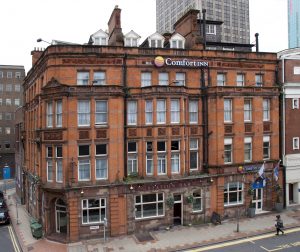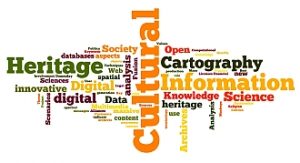European Archaeological Association annual conference, Bern 4-7 September 2019.
Session 144 Towards a Spatial Data Infrastructure for Archaeology
Are we getting best value out of the spatial data we create? Help deliver value from the data you create at Session 144.
Through the INSPIRE Directive (2007) public organisations across Europe are required to share environmentally-related spatial datasets to support decision making and management of the environment. As a result heritage agencies responsible for the designation and management of Protected Sites across Europe have released Web Map and Web Feature Services through the INSPIRE Geoportal.
In contrast to datasets mandated by INSPIRE, which are underpinned by consistent data standards, little consideration has been given to the wealth of spatial data created through archaeological fieldwork and research. Digital technologies now enable the high-precision recording of archaeological excavations and surveys, placing these activities in their wider landscape, whilst advances in remote sensing techniques combined with processing power allow recording to be undertaken over many hectares compared to the targeted, site-specific surveys of the early 21st century. Ground and Airborne Laser Scanning offer new opportunities for the recording and analysis of our past. This is data that ultimately informs our understanding and management of sites and archaeological landscapes, from informing the planning process to measuring the long-term impact of climate change. Despite its potential, the data is largely inaccessible beyond illustrations fossilised and siloed within individual final published reports. The underlying primary data is difficult to find, access and reuse. The data structure not only differs across but also within organisations, hindering efficient reuse. Then there are questions of who should collate, manage and publish spatial datasets, as well as access rights.
The Amersfoort Agenda recognises the need to share, connect and provide access to archaeological information through digital technologies, with the aspiration to improve collaboration, yet examples of a collaborative approach to managing and publishing spatial data pooled from archaeological projects are rare. We welcome papers that discuss the challenges and solutions to finding, compiling and accessing spatial data across multiple projects.
Call for papers closes Thursday 14 February 2019






